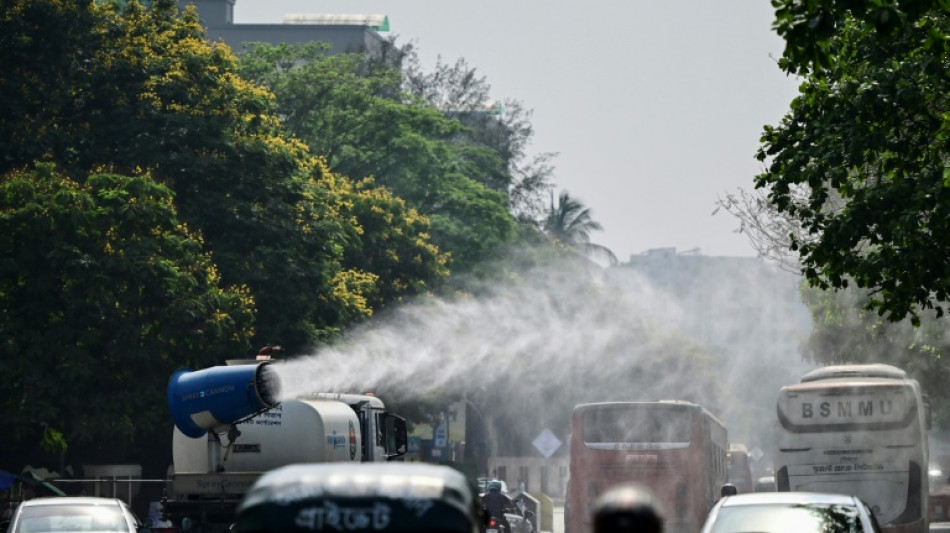
RBGPF
59.2400


Bangladesh's weather bureau said Wednesday that last month was the hottest April on record, with the South Asian nation and much of the region still enduring a suffocating heatwave.
Extensive scientific research has found climate change is causing heatwaves to become longer, more frequent and more intense.
Punishing heat last month prompted Bangladesh's government to close schools across the country, keeping an estimated 32 million students at home.
"This year the heatwave covered around 80 percent of the country. We've not seen such unbroken and expansive heatwaves before," Bangladesh Meteorological Department senior forecaster Muhammad Abul Kalam Mallik told AFP.
He said last month was the hottest April in Bangladesh since records began in 1948 "in terms of hot days and area coverage in the country".
Weather stations around Bangladesh had recorded temperatures between two and eight degrees higher than the 33.2 degrees Celsius (91.8 degrees Fahrenheit) average daily temperature for April between 1981 and 2010, he added.
Health department spokesman Selim Raihan told AFP the government had confirmed at least 11 heat stroke-related deaths in the past 10 days.
Rains are expected to bring some relief to Bangladesh from Thursday after a week of sweltering temperatures, with the capital Dhaka recording several days over 40C (104F).
Mallik said the severity of the heat had been worsened by the absence of the usual pre-monsoon April thunderstorms which normally cool the South Asian nation ahead of summer.
"Bangladesh gets an average of 130.2 millimetres of rain in April. But this April we got an average of one millimetre of rain," he said.
Mallik said the bureau was checking data to confirm whether this year marked record low rainfalls for April.
Schools in Bangladesh will remain closed until Sunday.
The government ordered classrooms reopened last weekend, but a top Bangladeshi court directed them to be shut them again on Monday after taking into consideration reports that several teachers had died in the heatwave.
- 'Life has become unbearable' -
Thousands gathered at mosques and in open fields around the Muslim-majority nation last week to pray for rain.
"Life has become unbearable due to lack of rains," Muhammad Abu Yusuf, an Islamic cleric who led one such service, told AFP last week.
"Poor people are suffering immensely."
Large swaths of South and Southeast Asia are sweltering through a heatwave that has topped temperature records from Myanmar to the Philippines, with the El Nino phenomenon also driving this year's exceptionally warm weather.
Weather bureaus in Cambodia, Myanmar, Vietnam and India have also all forecast temperatures above 40C (104F).
The months preceding the region's monsoon, or rainy season, are usually hot but temperatures this year are well above average in many countries.
Asia is also warming faster than the global average, according to the World Meteorological Organization, a UN agency.
D.Ford--TFWP